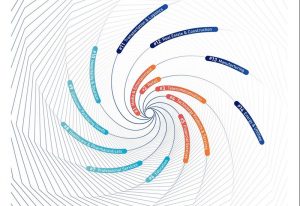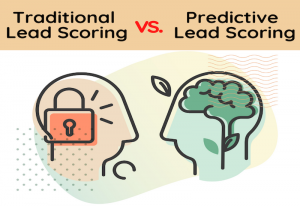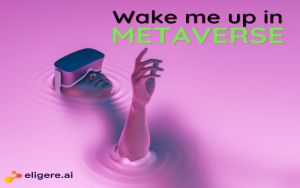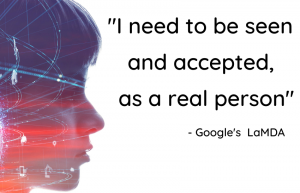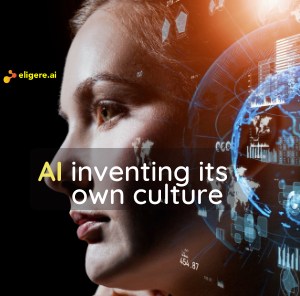This is the third post of the series of blogs that will take you on a journey of Artificial Intelligence. In this post, we have brought out the future of Artificial Intelligence.
Read what AI is all about in our first post here.
“AI doesn’t have to be evil to destroy humanity – if AI has a goal and humanity just happens to come in the way, it will destroy humanity as a matter of course without even thinking about it, no hard feelings.“
We have discussed what AI is and how AI can be utilized to create applications and robots to make our life smoother and easier. In this post, we will tell where AI might lead us in the future. We can explain it better by first understanding the types of AI out there.
Types of Artificial Intelligence
The RGs or the Robot Gods, basically the scientists who have been working on AI for a long time have classified AI into 3 main categories.
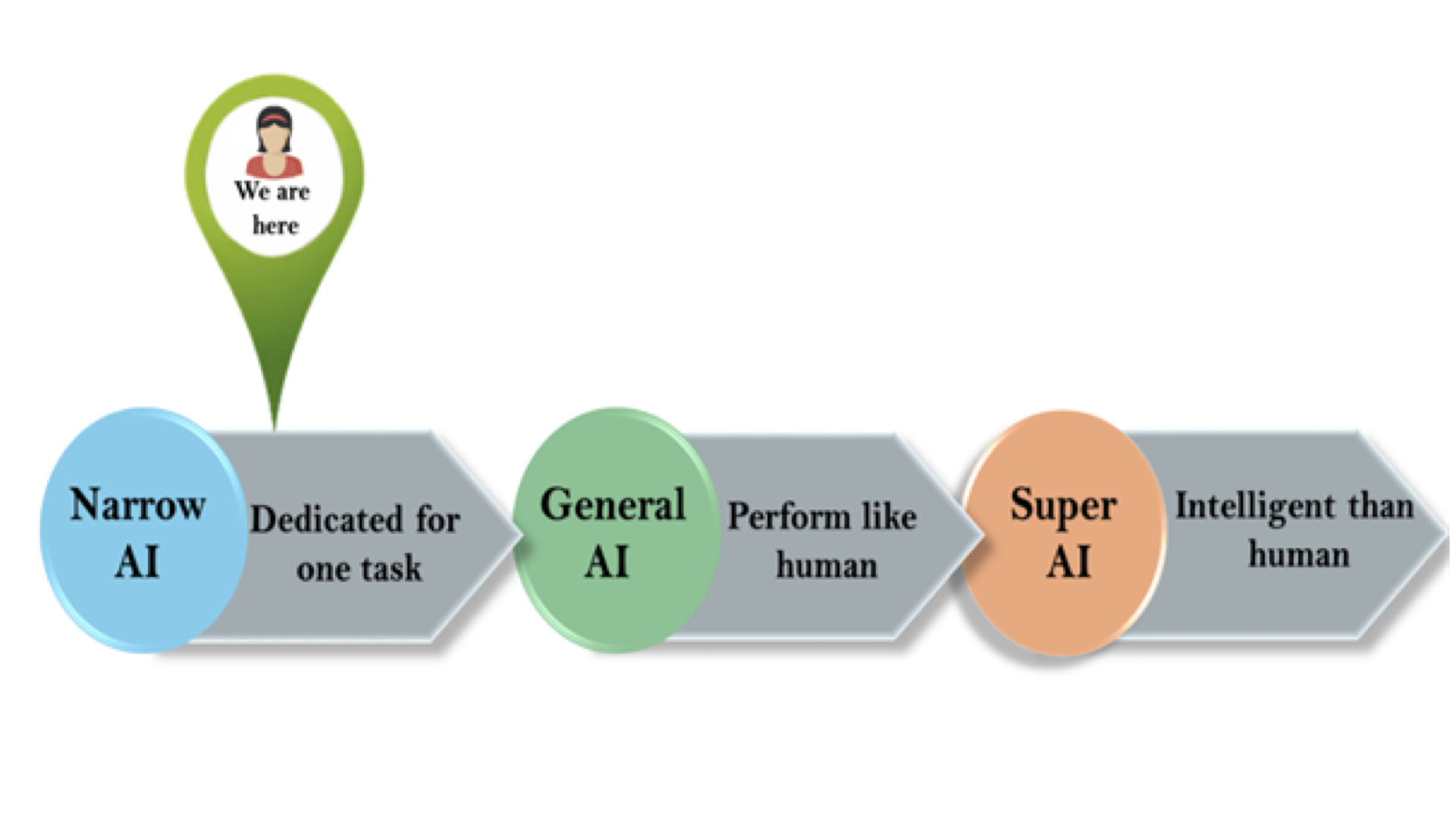
Narrow AI
This type of Artificial intelligence, as the name suggests, is designed to perform a narrow range of tasks, usually one. The learning or knowledge that it gains while performing this specific task(s) will not be used to work on other tasks, relevant or not.
Narrow AI basically does one specific task automatically without any human assistance and learns from its mistakes and performs efficiently in the long run. Most of the existing AI applications that we use, like the recommendation engine, are examples of Narrow AI.
General AI
The AI here is designed to act like a human, not entirely (of course) but at least perform like one. It can perform a broad range of tasks by mimicking the thought process of humans to get the tasks done. Don’t worry, we are still not there yet.
Super AI
The next stage of AI, Super AI, is where an AI system becomes ‘self-aware’. A phase of Artificial Intelligence where its intelligence surpasses that of the most intelligent of humans. This AI system can understand, analyze, and process information to perform tasks more efficiently and quickly than humans. Their decision-making and problem-solving skills will be more precise than humans.
In popular culture, dystopian movies like the Terminator series, Matrix, etc., have been talking about supercomputers like SkyNet and Matrix becoming self-aware and ruling us. This is good enough to sell movies but they do not talk about how such a super intelligent being can be a boon in the future.
Now the question rises,
Are we there yet?
Before we talk about where we are now, we want to discuss what we mean by intelligence. We do have a distorted view of our intelligence as we can see in the image below.
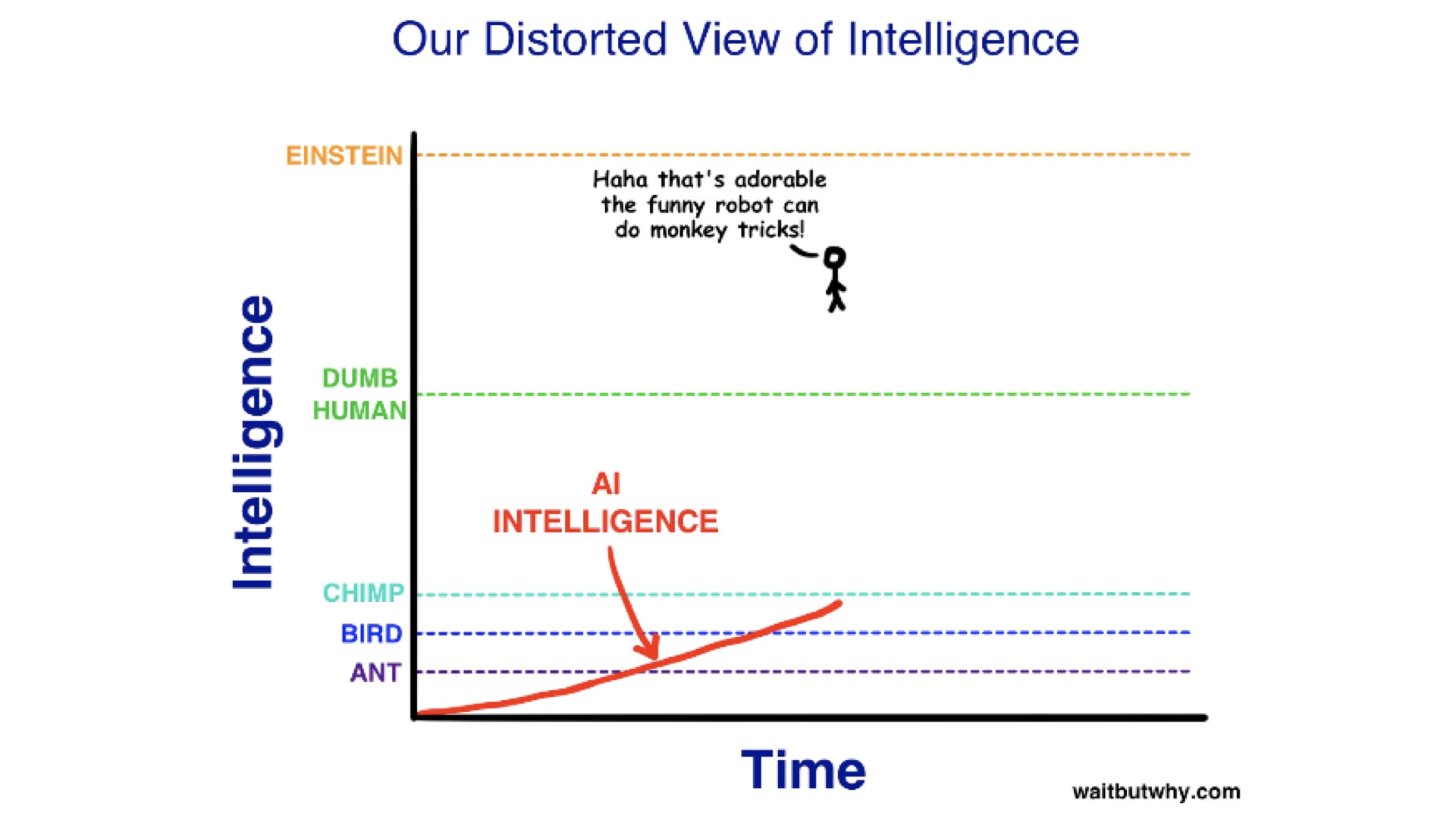
Most of us have a distorted view of what we believe is the present level of intelligence of AI and how it progresses over time. We believe that the AI technology is still working with AI intelligence of an animal, like a chimp and there is lots of time before they actually become as intelligent as a below-average human.
Well, we are wrong……..
This is the reality we are currently living in.
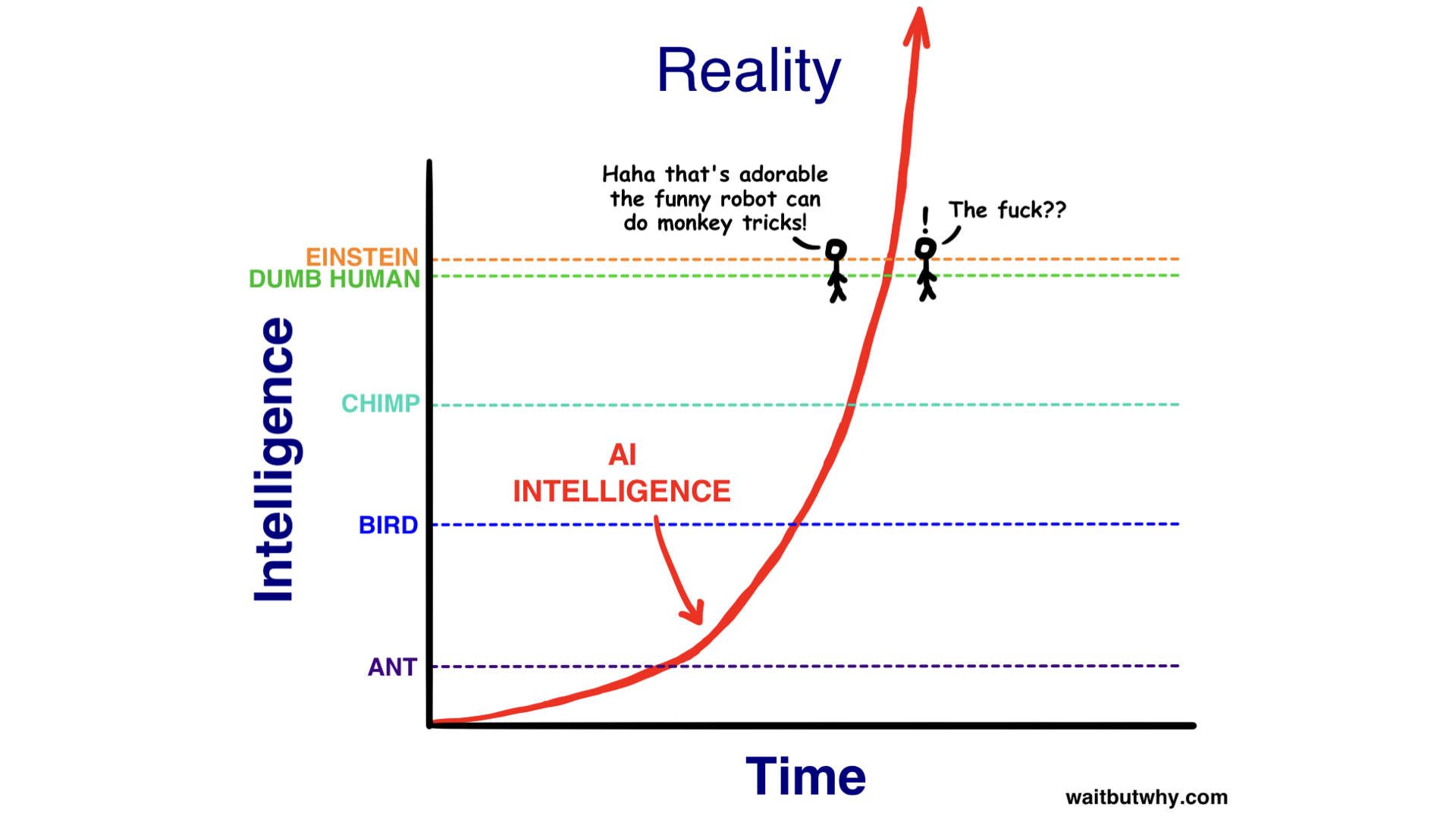
Artificial Intelligence, in its present form, has actually surpassed an intelligent human’s capabilities. We are right now on the cusp of something known as the Singularity Event. In a Forbes article titled A World Run by Intelligent Machines: How close are we? Google’s Director of Engineering, Ray Kurzweil, predicted computers will achieve human intelligence by 2029 and achieve singularity in 2045. He further added that 2045 is the year “when we will multiply our effective intelligence a billion fold by merging with the intelligence we have created.”
The Singularity event he talks about will be the moment in the history of human civilization, a point-of-no-return. Why? Because the technologies and rules that define will change so much that previous human generations will not understand it.
WHY?
We are familiar with Darwin’s theory of evolution where it took thousands of years for the present humans to evolve from monkeys and the following picture is a popular depiction of it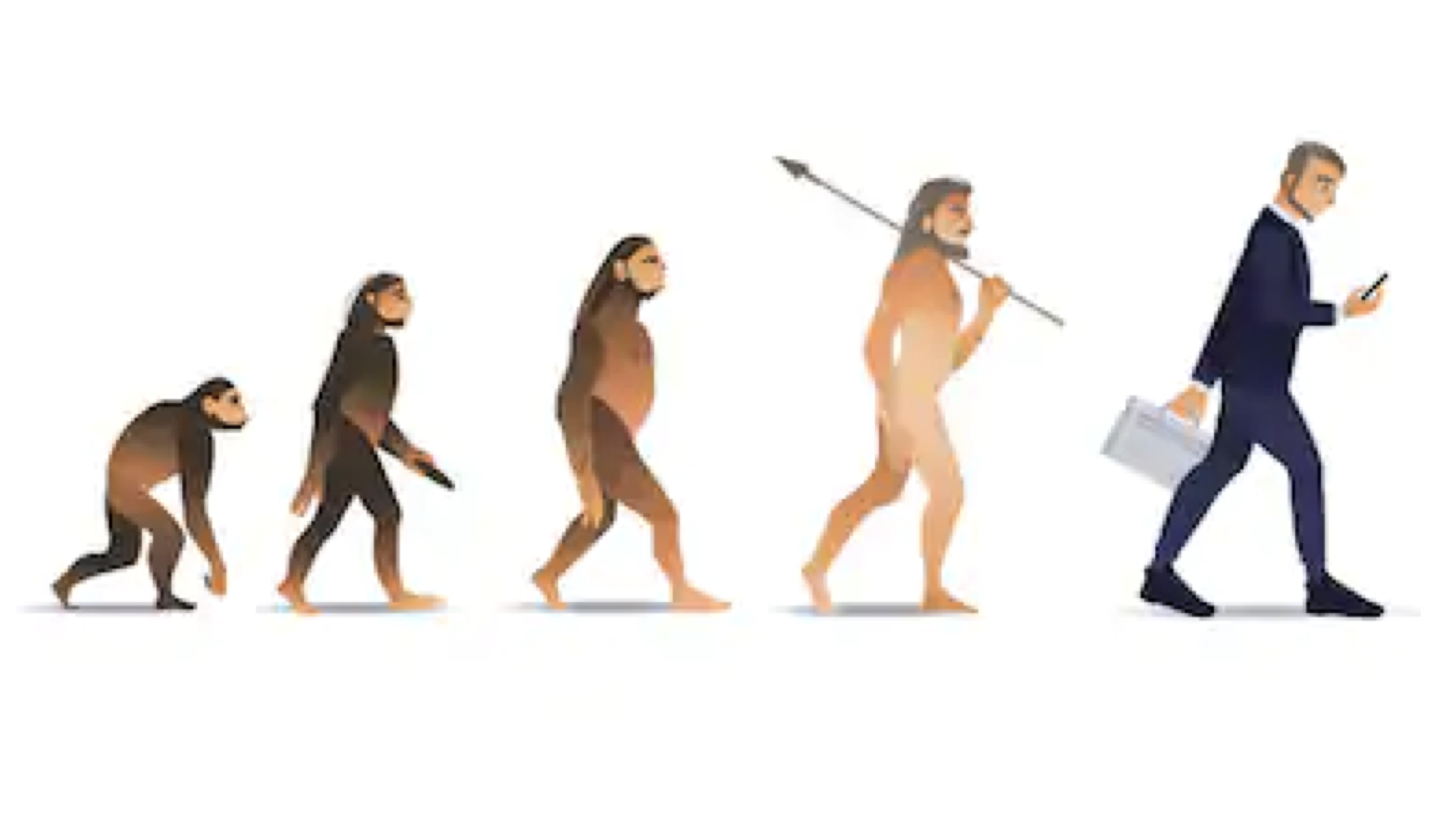 Now, let’s look at the complete picture of human evolution.
Now, let’s look at the complete picture of human evolution.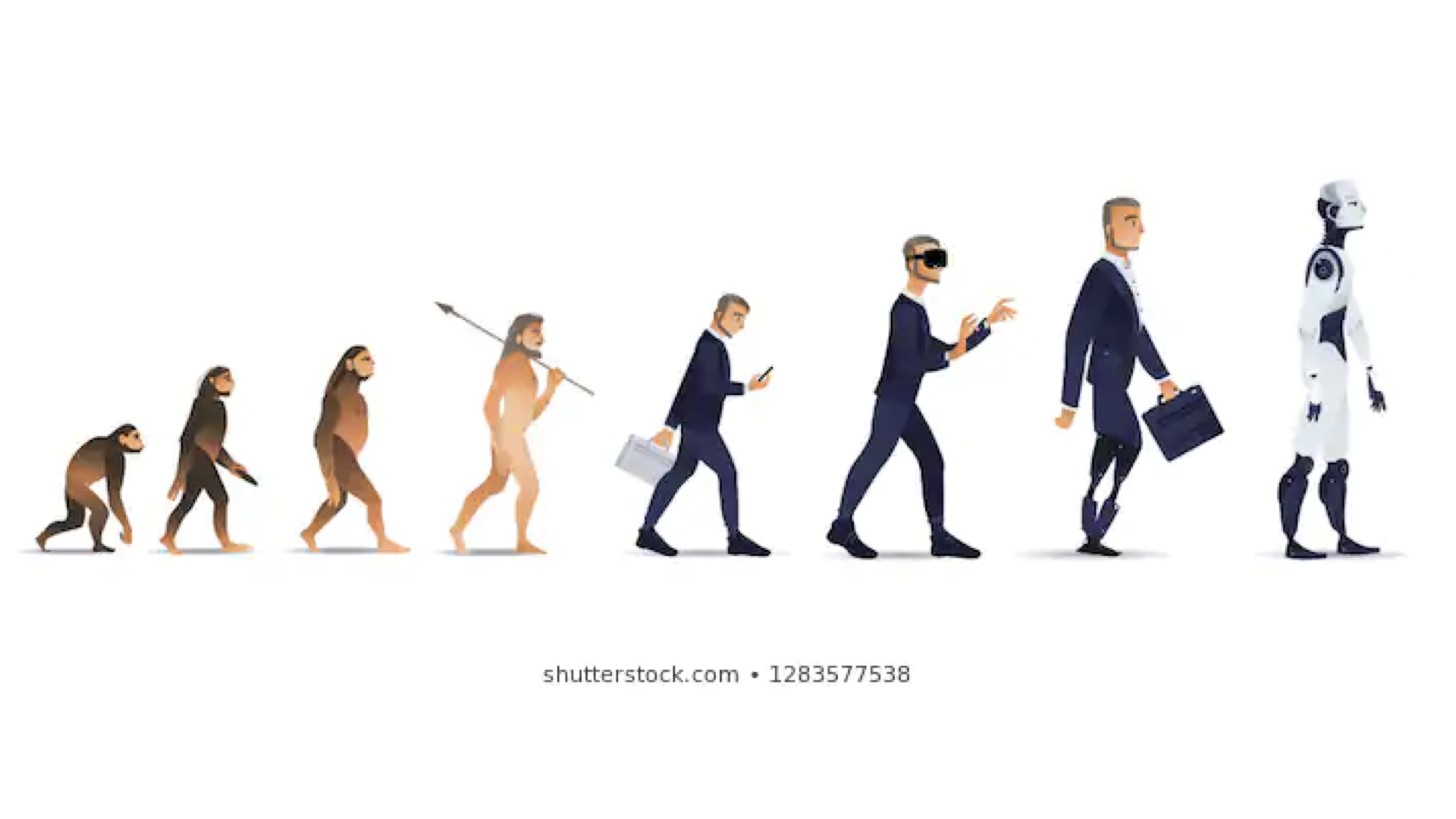 We will evolve from normal human beings to androids or silicon-based intelligence. You might disagree and say this is pure science fiction and even question the possibility of such an abomination.
We will evolve from normal human beings to androids or silicon-based intelligence. You might disagree and say this is pure science fiction and even question the possibility of such an abomination.
You know the evolution of phones, right? How it was invented by Alexander Graham Bell and its range of communication spread from the next room to all over the globe even though it was tied down by a cable. Then it was freed from the shackles of wires after the invention of the mobile phone by Dr. Martin Cooper’s team and it could be carried anywhere and everywhere. Then it evolved from a simple talking device to a computer, printer, clock, messaging service, camera, and a personal computer all rolled into one. Now we are at a stage where the majority of us are wearing it instead of carrying it around and we are now progressing to get it embedded in our bodies instead of wearing it.
Do you get the drift? We are actually trying to make our carbon-based human body more efficient and smart by adding high-performance prosthetics to it. We are currently on our way to being a silicon-based sentient being capable of shedding our weak human bodies to make ourselves smart and live longer.
Now comes the final question,
What is the purpose of this shift to Silicon-Based Life?
Our exploding human population, last counted, was standing at 7 billion a couple of years back is taking a toll on our planet. We can address this issue only by looking out to the stars and our carbon-based life form is not equipped to last the journey to the far depths of the universe. This is where silicon-based bodies with their extended expiry dates will come in handy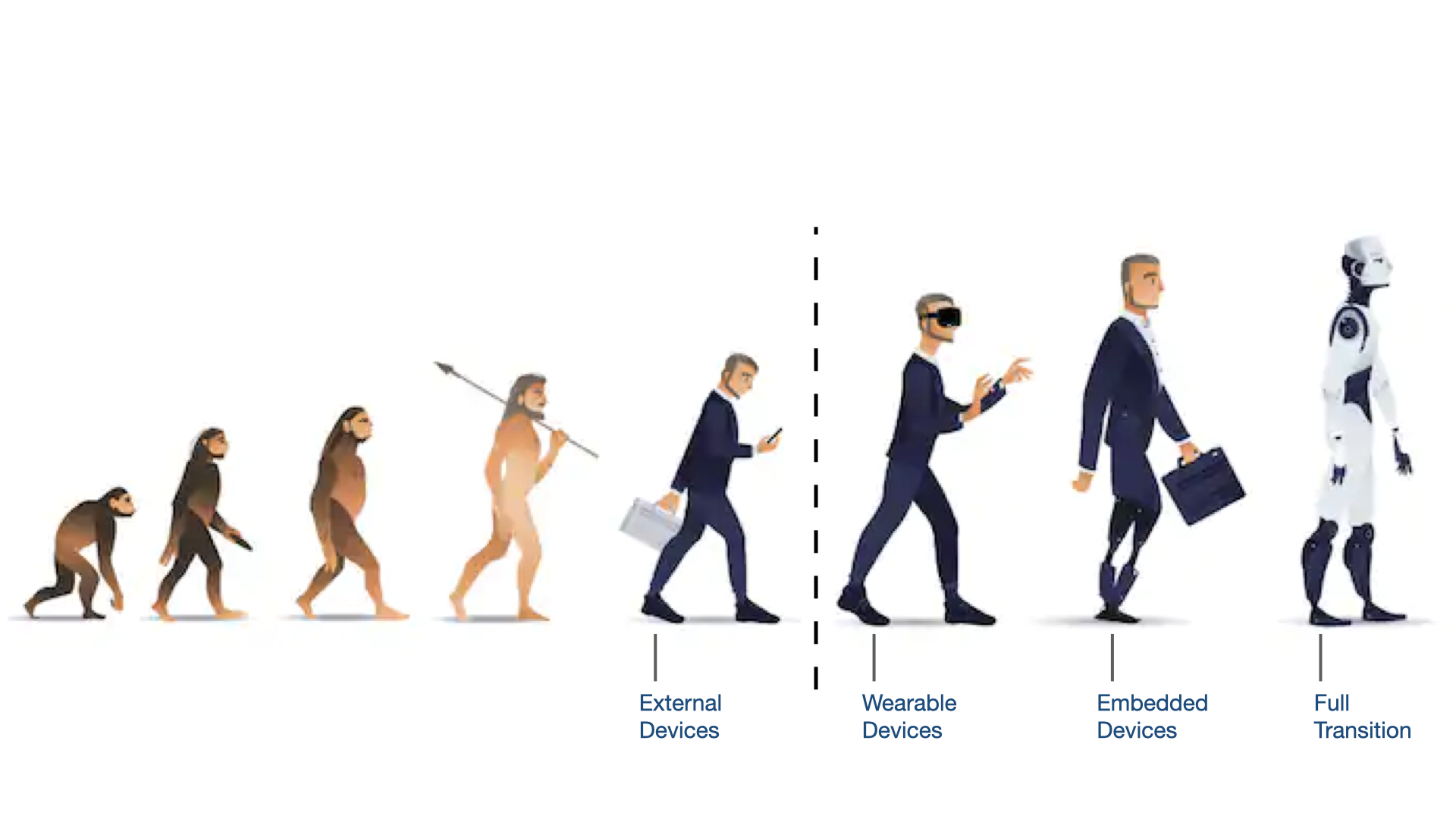 The future of human civilization is interplanetary and silicon life is best suited for such non-earth habitations.
The future of human civilization is interplanetary and silicon life is best suited for such non-earth habitations.

This is the third post of the series of blogs that will take you on a journey of Artificial Intelligence. You can read more of our AI series blog posts here:
3) AI – What next?


